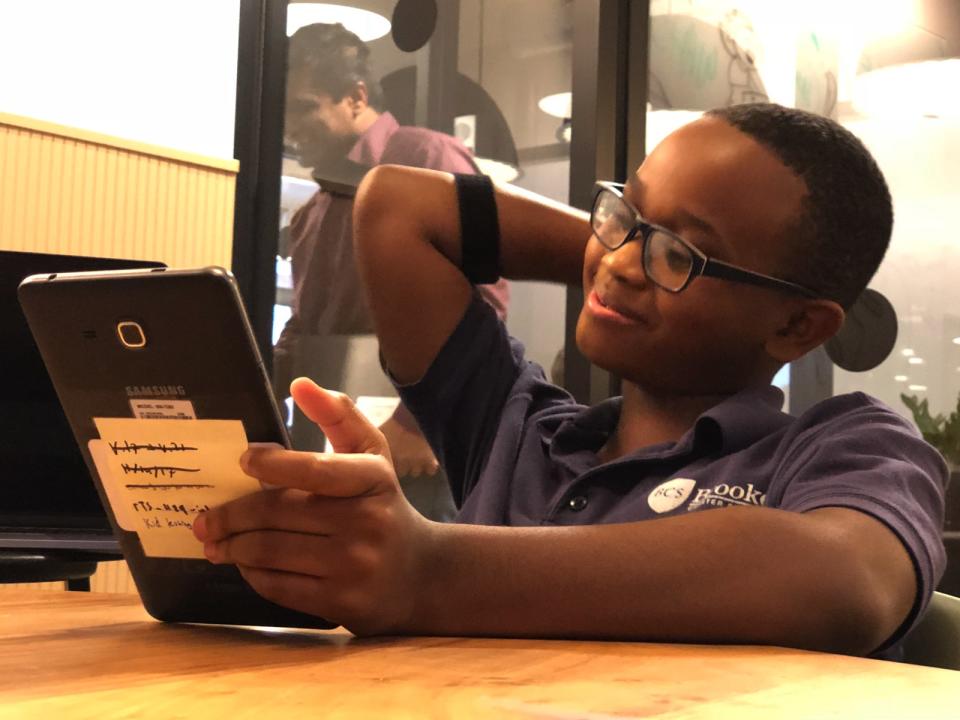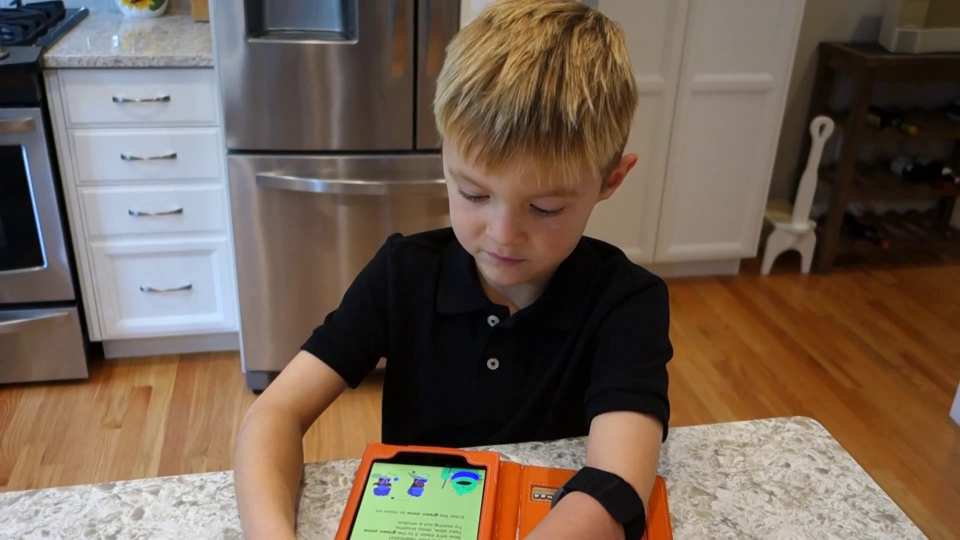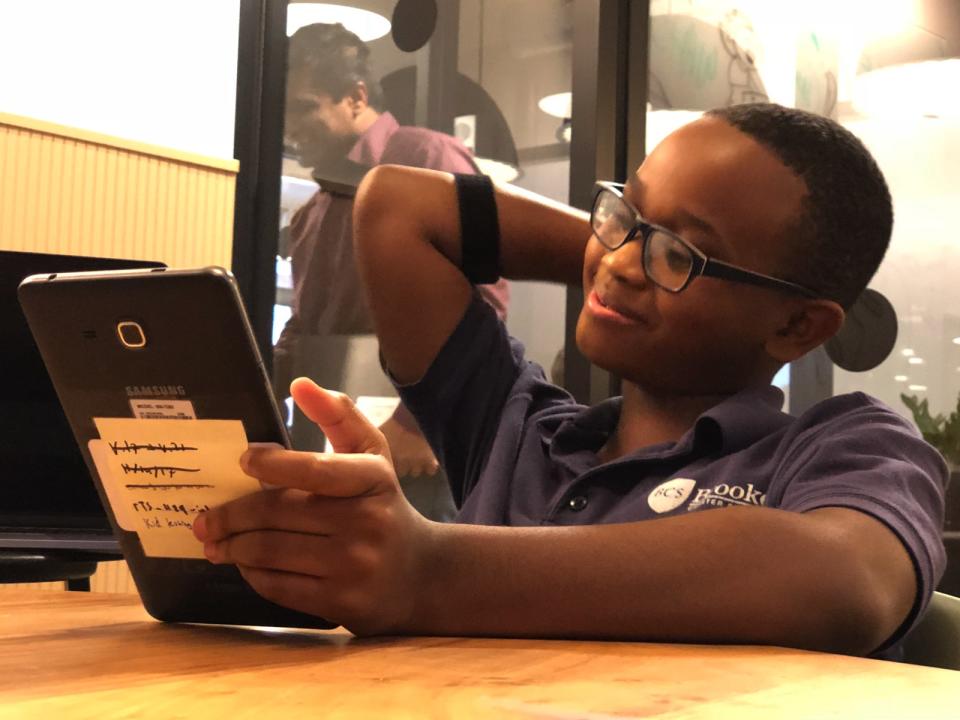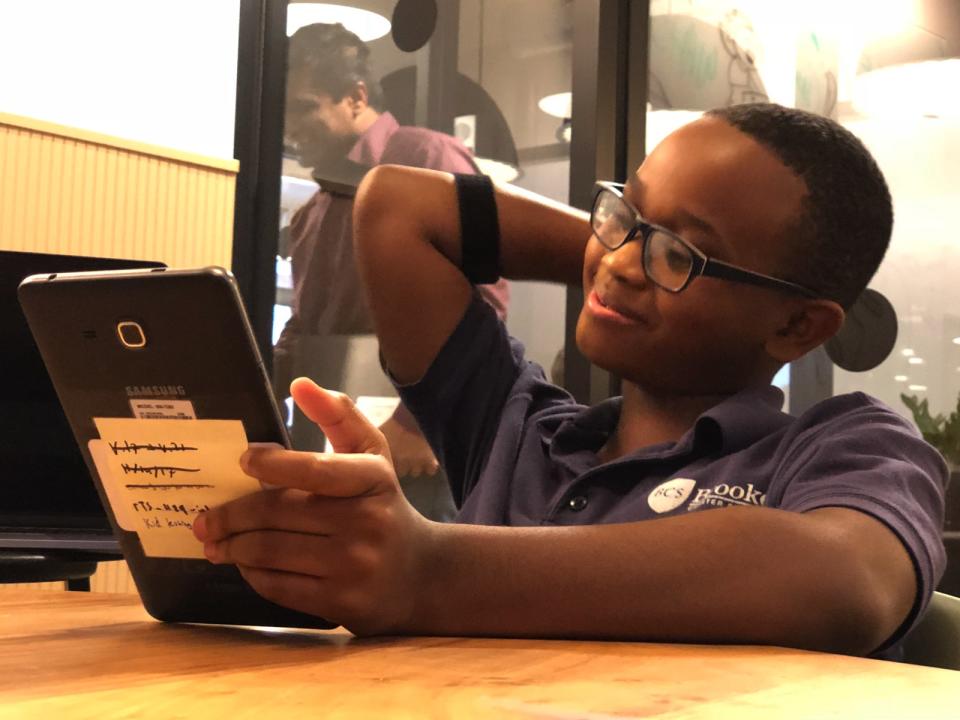Mightier is helping calm kids down through mobile games
It works with games you've heard of, and the results are promising.
Learning how to regulate your emotions is a fundamental skill, but it can be tough for kids, especially those with challenging behaviors, oppositional disorder, ADHD and autism. Mightier, by Neuromotion Labs, is a gaming platform that teaches kids a valuable set of emotion management skills using just a phone, an app and a heart rate monitor.
"This really started for me about ten years ago at Boston Children's Hospital and really trying to understand how we can improve emotional regulation skills in kids," said Mightier co-founder Jason Kahn. "If things don't go your way, how are you going to take on that challenge? Do you have both the neural circuitry and the skills to be able to gracefully get through a challenge, or are you going to find yourself really triggering that fight-or-flight reflex?"
Mightier works like this: kids strap on a wrist-based heart rate monitor that's paired to an iPhone, then choose something to play. The titles are actual App Store games whose developers have allowed Mightier access to their game code. "We work with a number of indie developers you've probably heard of," said co-founder Trevor Stricker. "One of our most popular games on the platform is Hundreds by Finji, which is Adam and Bekah Saltsman. We've also worked with Race the Sun by Aaron San Filippo at Flippfly."
Other games on the Mightier platform include Runaway Toad, where you play a toad that doesn't want to be kissed by a princess, and Unpossible, an endless runner with a gravity-defying 3D track. As kids play each game, things get more difficult, which helps the child's heart rate to go up. That might mean visual distractors that appear onscreen, more enemies or an increase in speed to make the game more difficult. The Mightier platform manages the difficulty changes based on the feedback from the heart rate monitor.
The child's heart rate is displayed on the phone so they can see it. Once it reaches the "red zone," the game pauses and plays a little animation to model a deep-breathing, calming exercise. The kids can watch their heart rates fall as they calm themselves down, which lets them experience that in their own bodies, rather than just watching someone else model the behavior.
"We have clinical research that shows that this intentionally calming yourself down in the moment is extremely effective in exercising your parasympathetic nervous system and strengthening your emotional regulation," said Stricker. Kahn and his team conducted two studies: one with 10 kids in an inpatient setting and one with 20 children as outpatients. The researchers found that 45 minutes a week of playing Mightier reduced outbursts by 62 percent, decreased oppositional behaviors by 40 percent and lowered parent stress by 19 percent.

The tools educators currently use to teach emotion management are pretty poor, said Kahn. "I think about it like riding a bike almost," he said. "The tools we have for teaching [emotional regulation] right now look a lot like taking a kid to an office, putting a bike in the middle, throwing a manual at them and hoping they learn how to ride a bike."
Instead, he said, Mightier works more like the way we really teach kids to ride a bicycle. "You put them on the bike and you watch them practice and practice and practice, and they build the skill. And it's okay that they wobble around, and that's fine," said Kahn.
According to Kahn, one parent told the Mightier team that her son started asking to use the system on his own within weeks of being introduced to it. When he started feeling angry or frustrated, he'd ask for the game and play for a bit. Then he'd be able to work things out more calmly. Soon after that, he began just closing his eyes and doing some deep breathing on his own, and he was finally able to regroup, take a break or ask for help without an outburst.
The team worked with kids in Montreal who had problems with classroom outbursts, which is disruptive both to their own learning and that of the kids around them. The students in Montreal were leaving class an average of six times a week, but after using Mightier, the same students were having to leave an average of only twice a week.
"As a society, we throw so many strategies at these kids, and they all know them," said Kahn. "You can't find a kid who doesn't know about deep breathing, or [something] similar. They know them, but they don't know what to do with these skills."
The co-founder added: "Now tell them, 'Look. You can put this all together. You can do it. You're the one who's in control of your own emotions.' To watch kids build it and figure it out, and finally have things snap into place, is really exciting."





